Navigating the High-Pressure World of Teens

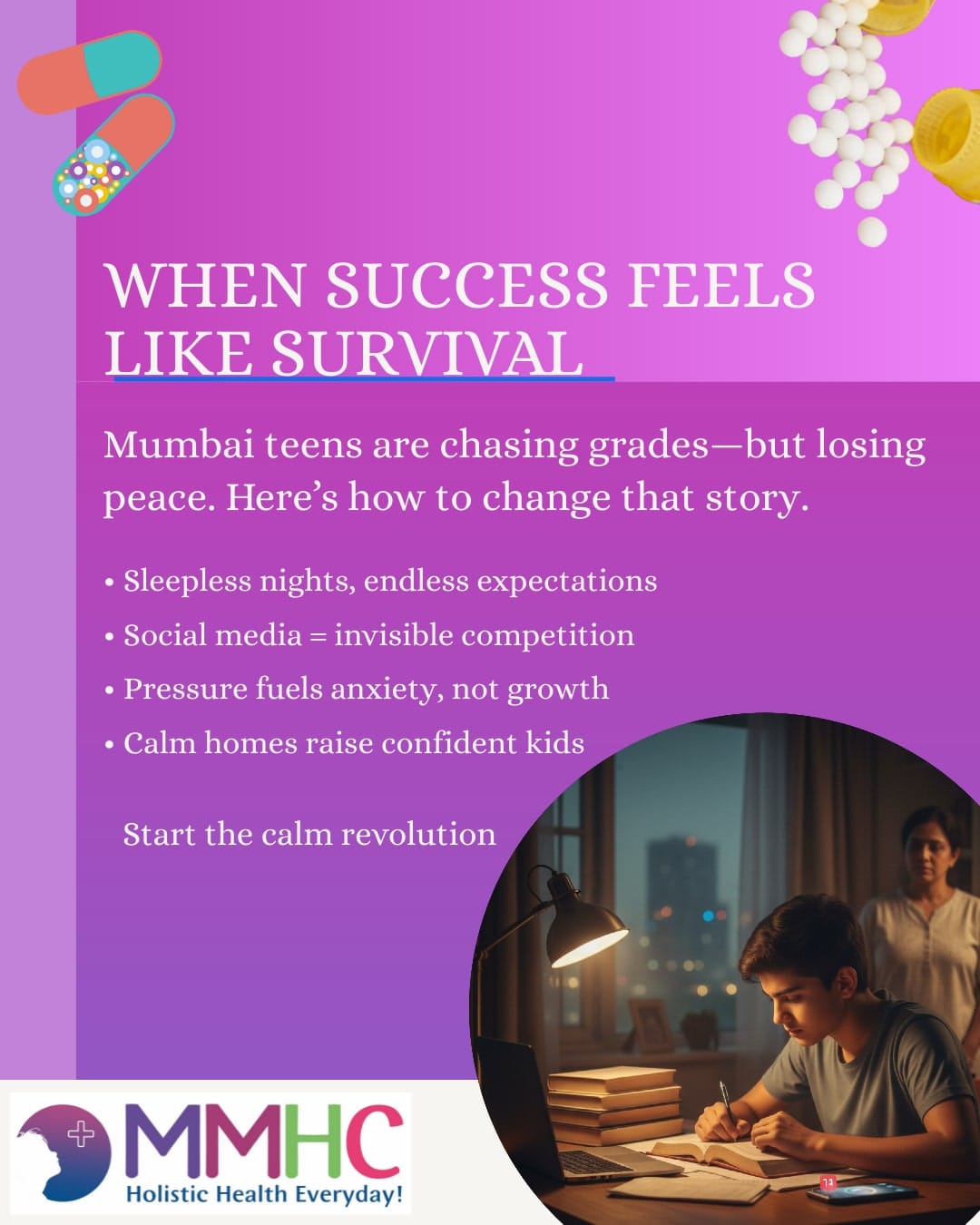
Picture this: It's late evening in a bustling Mumbai apartment. Your teenager, Rohan, is hunched over textbooks, surrounded by notes for his upcoming board exams. The pressure of competitive entrance exams like IIT/JEE looms large, tuition classes fill his evenings, and the constant notifications from his phone pull at his attention. He's exhausted, irritable, and the weight of expectations – both academic and social – is palpable. This isn't just Rohan's story; it's a common scene for countless teenagers navigating the intense academic and social landscape of our city. They're striving for excellence, often at the cost of their peace of mind, caught between the demands of school, the allure of social media, and the ever-present hum of urban life.
As parents, we witness this struggle and often feel helpless. We want our children to succeed, but not at the expense of their well-being. Is there a way to equip them with skills to not just cope, but truly thrive amidst this relentless pressure? Can we help them build an inner strength that allows them to face challenges with calm and confidence? The answer, thankfully, is yes. For more on navigating these challenges, explore our guide on supporting teen mental health in Mumbai.
Understanding the Research: The Science of Teen Resilience
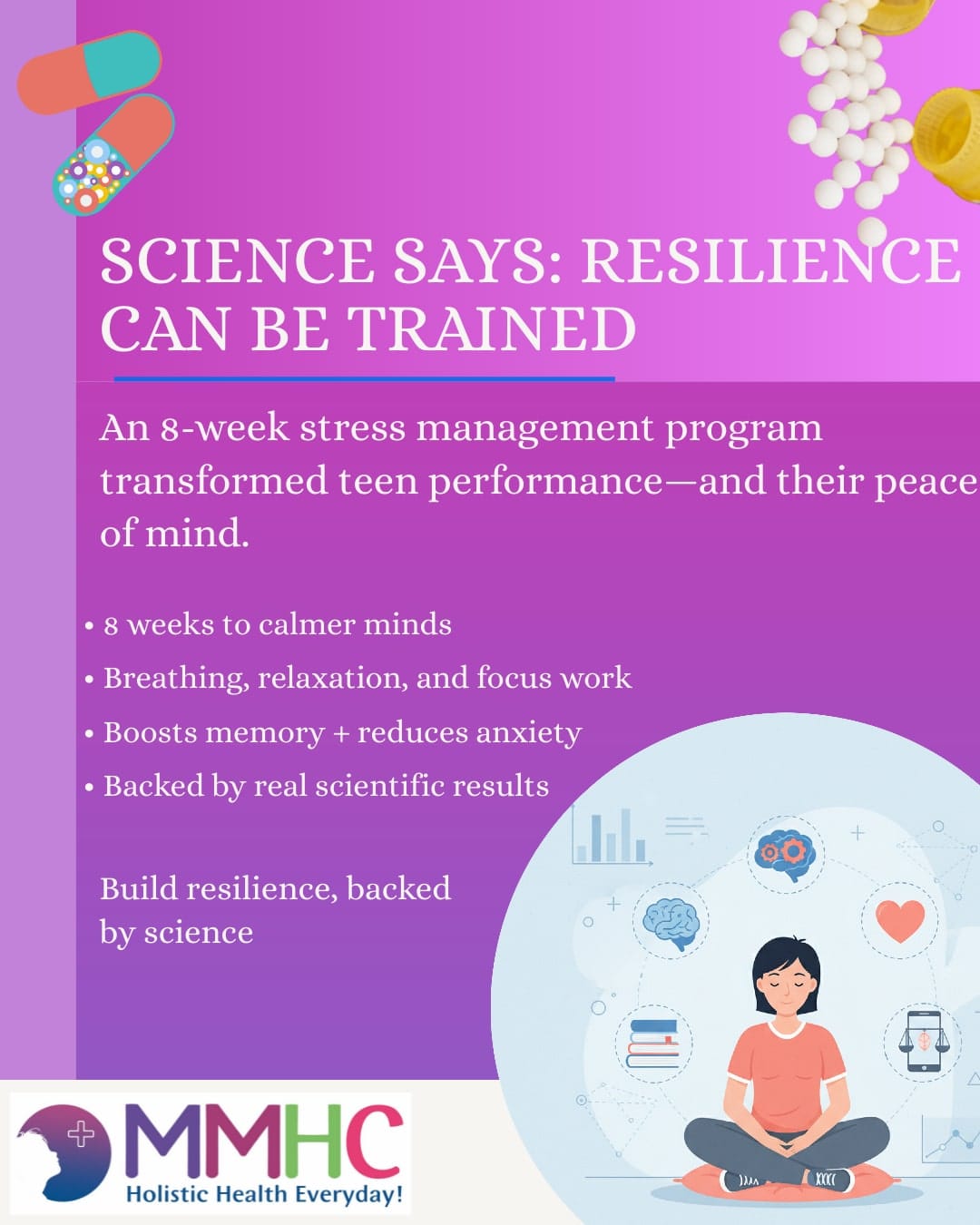
Recent research offers a beacon of hope, providing an evidence-based approach to help teenagers develop crucial coping mechanisms. A randomized controlled trial (RCT) published in Nature explored the impact of an 8-week stress management program on adolescents. This program incorporated practical techniques such as diaphragmatic breathing, progressive muscle relaxation, and other cognitive-behavioral strategies. The findings were compelling: teenagers who participated in the program showed a significant boost in their resilience, a marked reduction in stress and anxiety levels, and even a decrease in their social media usage. Perhaps most encouragingly, the study also reported improvements in their school performance and cognitive skills, including the speed of information processing and memory.
Stress Drive Mental Crisis Amoung Students
While this was a focused study with a relatively small sample size and more long-term research is helpful, the results provide a strong, evidence-based blueprint for action. It demonstrates that teaching specific, actionable stress management techniques can have a profound positive impact on a teenager's mental and academic life. The study found that teenagers who followed the program "significantly improved the speed of information processing and memory."
Why Emotional Wellness is Your Teen's Superpower?
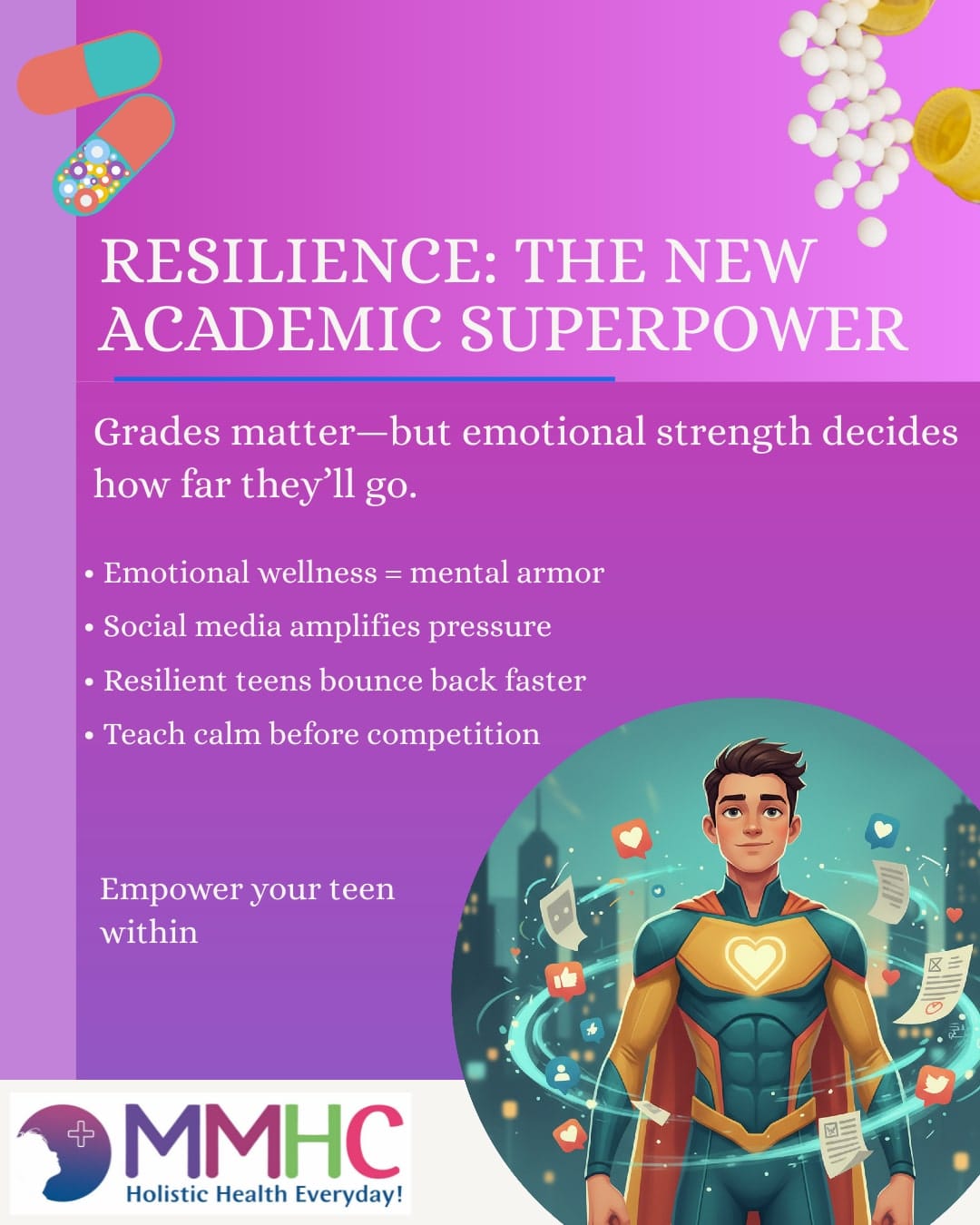
In a city like Mumbai, where academic competitiveness is high and social media often amplifies feelings of inadequacy and the pressure to seek validation, emotional wellness isn't a luxury; it's a fundamental skill for survival and success (Social Media and Academic Pressure: Emotional Struggles in Youth). Think of resilience like building a strong foundation for a building in a monsoon-prone city it helps withstand the storms. Emotional wellness for teens means equipping them with an internal toolkit to navigate the inevitable ups and downs of life, from the stress of board exams to the challenges of peer comparison on platforms like Instagram and TikTok.
The constant need to post achievements and keep up with curated online personas adds an enormous burden to students already grappling with academic expectations. This comparison culture can lead to feelings of inadequacy, stress, anxiety, and even burnout before they finish high school. Parental expectations, often inadvertently amplified through social media boasting, further contribute to this pressure cooker environment. By focusing on emotional wellness, we empower our teenagers to develop self-awareness, self-regulation, and the ability to bounce back from adversity, transforming them from passive recipients of stress into active managers of their mental health. This internal strength is their true superpower, enabling them to not only achieve academic success but also to lead balanced and fulfilling lives. Learn more about building this foundation in our emotional wellness workshops.
Your 8-Week Family Action Plan: Building Resilience Together
This 8-week plan, inspired by the research, is designed for you and your teenager to embark on together. It's a journey of discovery, practice, and building lasting habits that will serve them well beyond their school years.
Week 1: Foundation - Discussing Stress & Healthy Routines
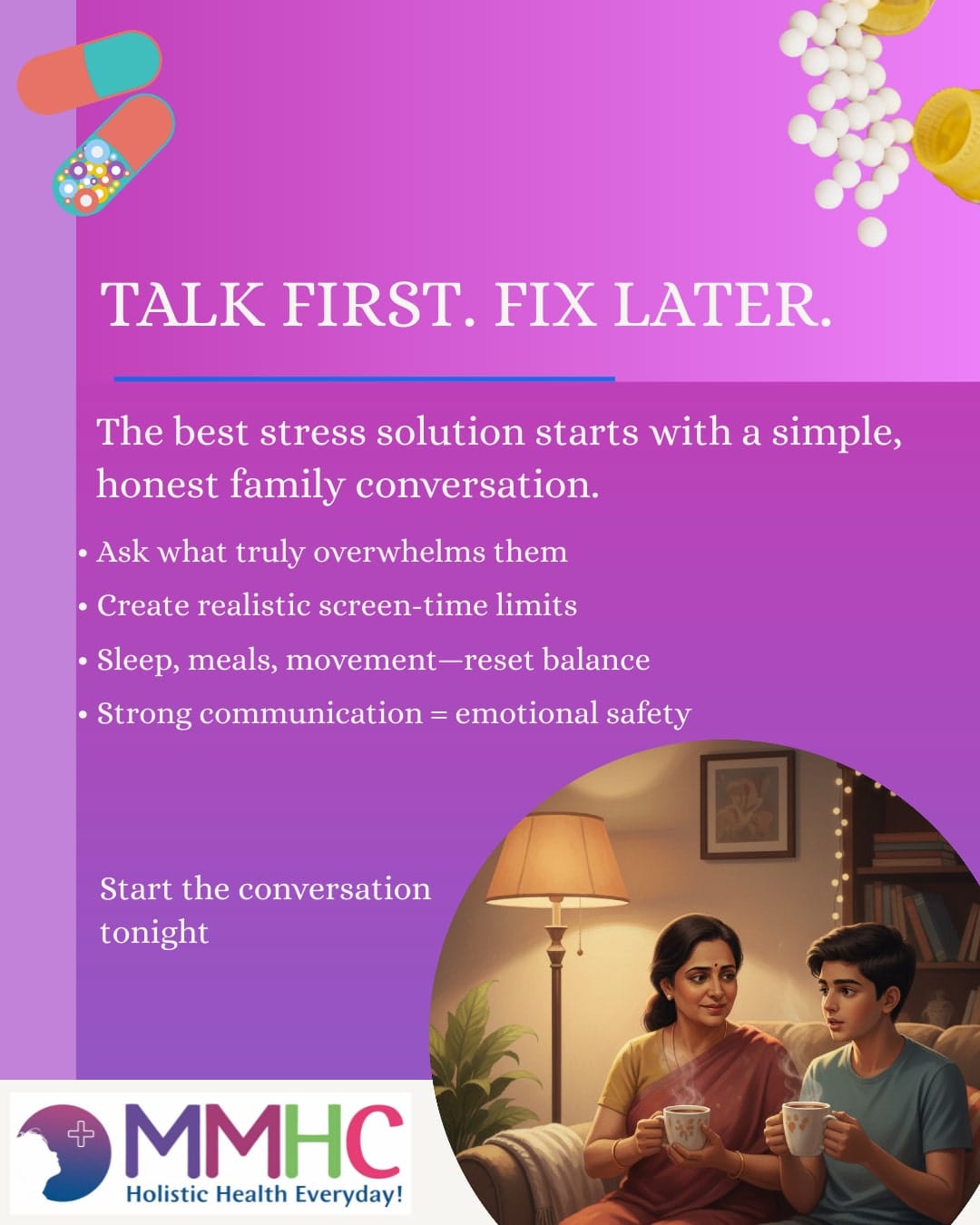
His week is about opening lines of communication and establishing a baseline for well-being.
Instructions: Get you and your teen together and have a real, open, non-judgmental conversation about stress. Ask them what is making them feel overwhelmed – exam pressure, social media, expectations from peers, or something else? Help them recognize what stresses them out. Set healthy habits together: regular sleep schedules (including weekends), normal meal times, realistic screen-time limits. Encourage them to pick a physical activity they like, even if it’s just a brisk stroll through a nearby park.
This Week's Goal: Understand your teen's unique stressors and lay the groundwork for healthier habits. For expert guidance, the World Health Organization emphasizes the importance of protective factors like strong family communication for adolescent mental health.
Week 2: Mastering Diaphragmatic Breathing
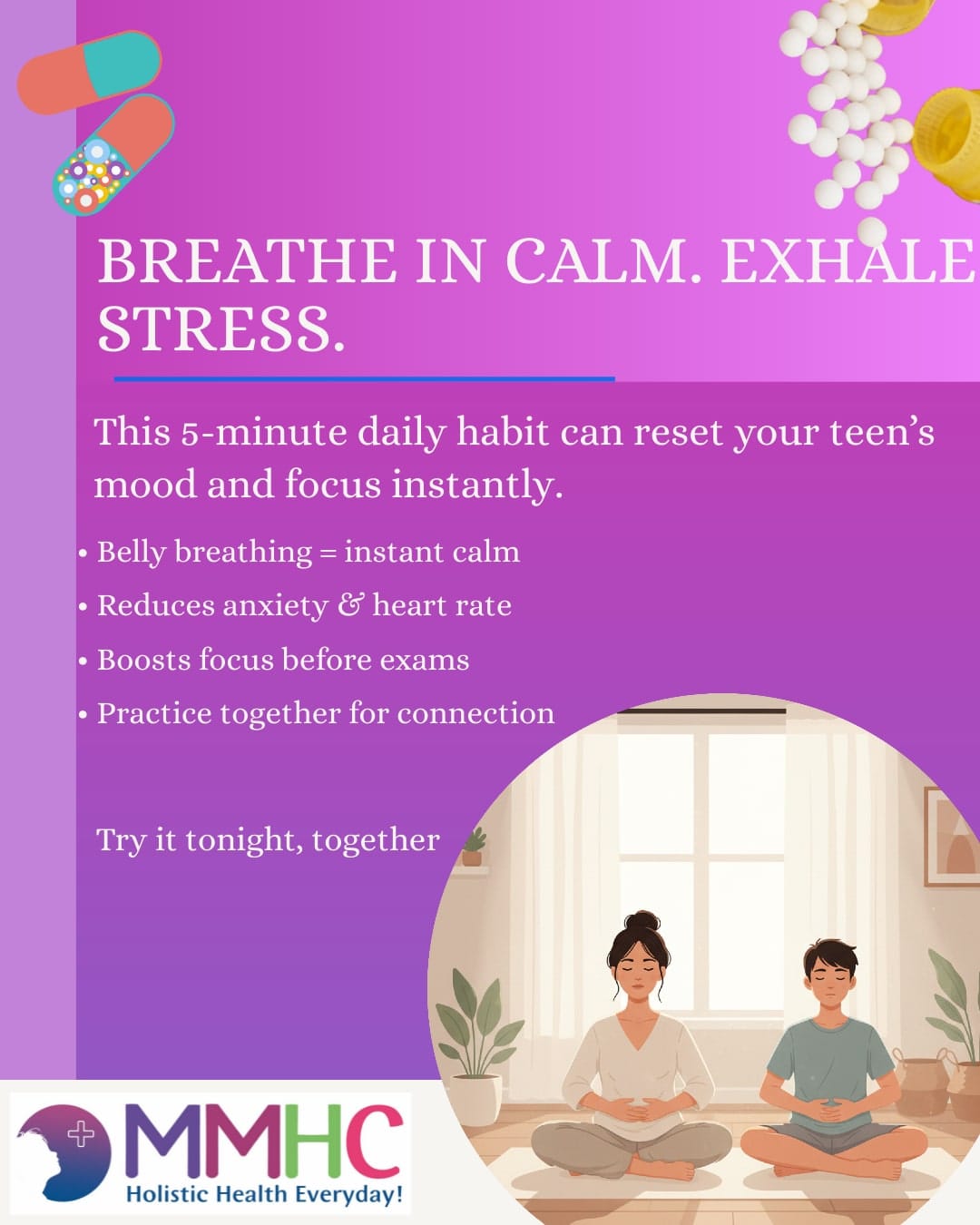
Often called "belly breathing," this technique is a powerful tool for calming the nervous system.
Instructions: Find a quiet spot. Have your teen take a comfortable seat or lie down with one hand on the chest and the other on the belly. Tell them to breathe in slowly through the nose and feel the belly rise as they do so, while the chest remains relatively still. Then, slowly exhale through your mouth and watch your belly fall. Breathe deeply and smoothly. Do this twice a day, for 5 to 10 minutes. You can do it with them!
This Week's Goal: Introduce a powerful calming technique and practice daily to activate the body's relaxation response. This is a core component of our mindfulness-based therapies.
Week 3: Learning Progressive Muscle Relaxation (PMR)
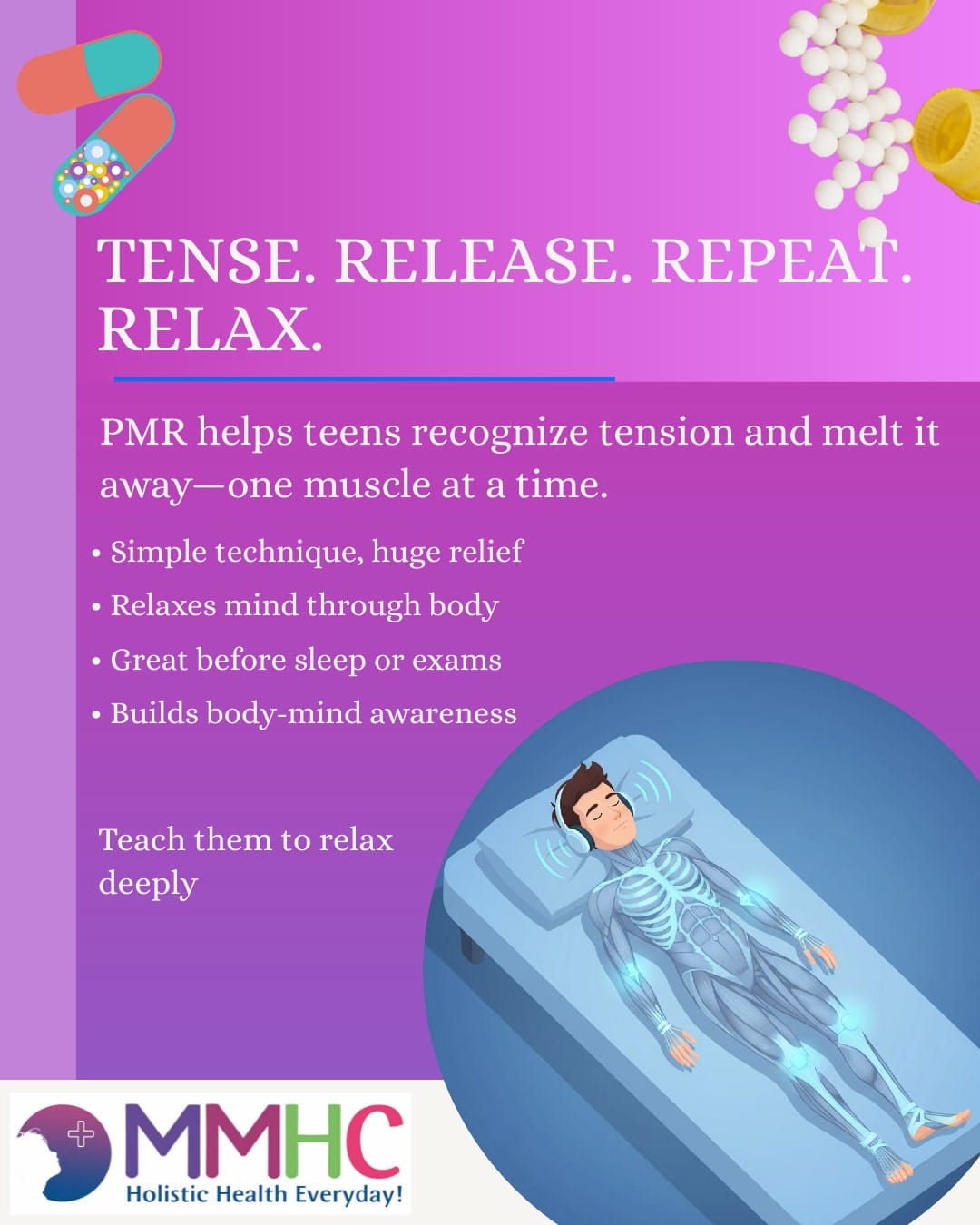
PMR helps teens recognize and release physical tension, a common symptom of stress.
Instructions: Describe PMR as the practice of systematically tensing and relaxing different muscle groups to let go of physical tension. Help your teen find a comfortable position, lying down or sitting. Begin at their feet: have them curl the muscles in their feet tightly for 5 seconds and then fully relax them for 15 seconds, noticing the contrast. Work your way up the body systematically—calves, thighs, glutes, abdomen, arms, hands, shoulders, neck, and face.
This Week's Goal: Recognize and release physical tension in the body, promoting deeper relaxation. A study in Psychological Reports found PMR effective in reducing anxiety and physiological arousal in students.
Week 4-5: Introducing Positive Thinking & Healthy Diet
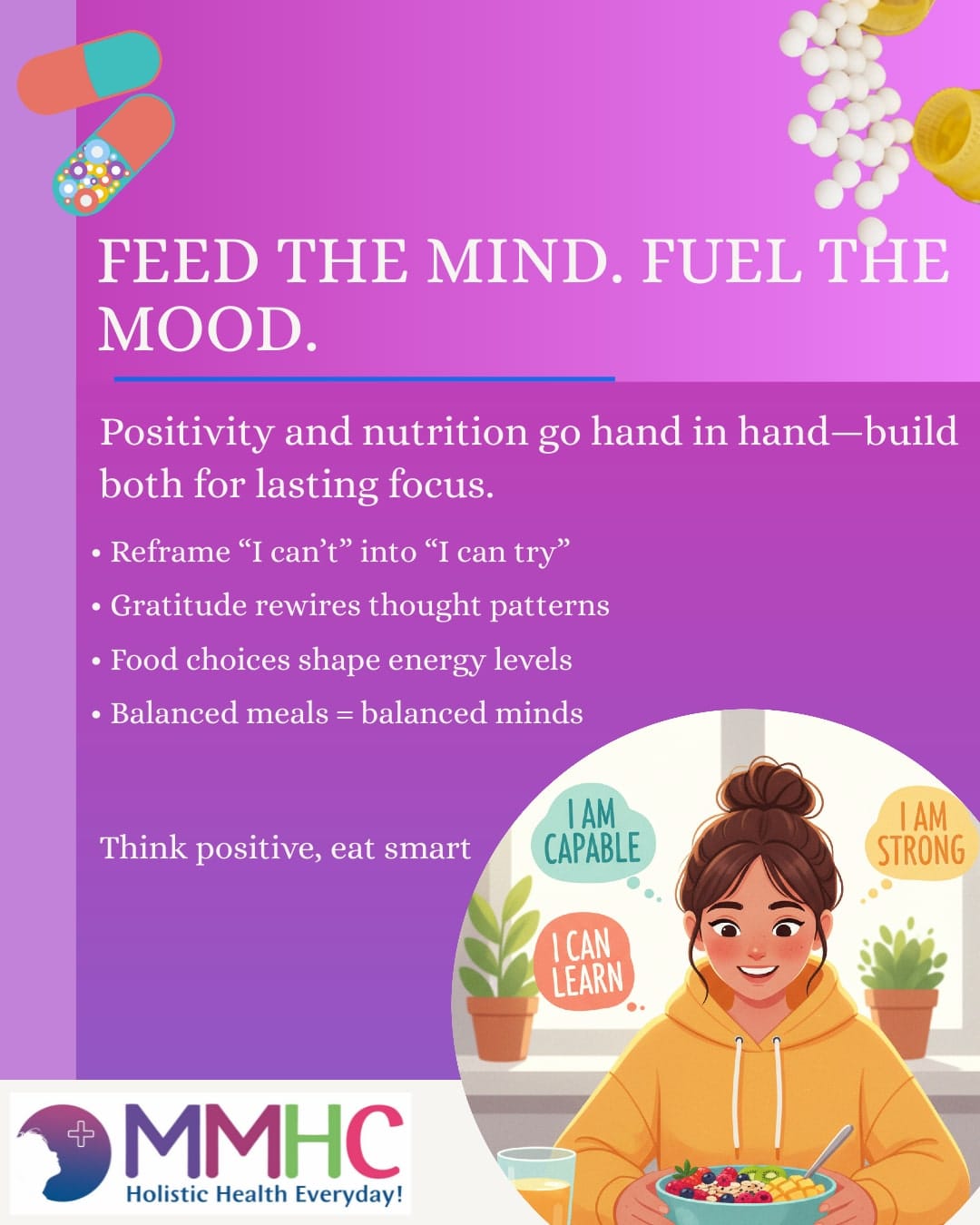
These two weeks focus on nurturing the mind and body from within.
Instructions for Positive Thinking (CBT concepts): Help your teen identify common negative thoughts they might have, especially around academics ("I'll fail this exam," "I'm not smart enough"). Encourage them to challenge these thoughts and reframe them into more realistic and positive statements ("I've prepared well, I'll do my best," "I can learn from my mistakes"). Introduce a daily gratitude practice, where they list three things they are thankful for.
Instructions for Healthy Diet: Discuss the link between food, mood, and energy. Focus on incorporating balanced meals with plenty of fruits, vegetables, whole grains, and lean proteins. Reduce processed foods, sugary drinks, and excessive caffeine. Emphasize staying hydrated throughout the day.
This Week's Goal: Cultivate a more optimistic mindset and fuel the body for optimal brain function and emotional stability. The principles of Cognitive Behavioral Therapy (CBT) are directly applied in this week's exercises.
Week 6: Adding Guided Imagery for Focus
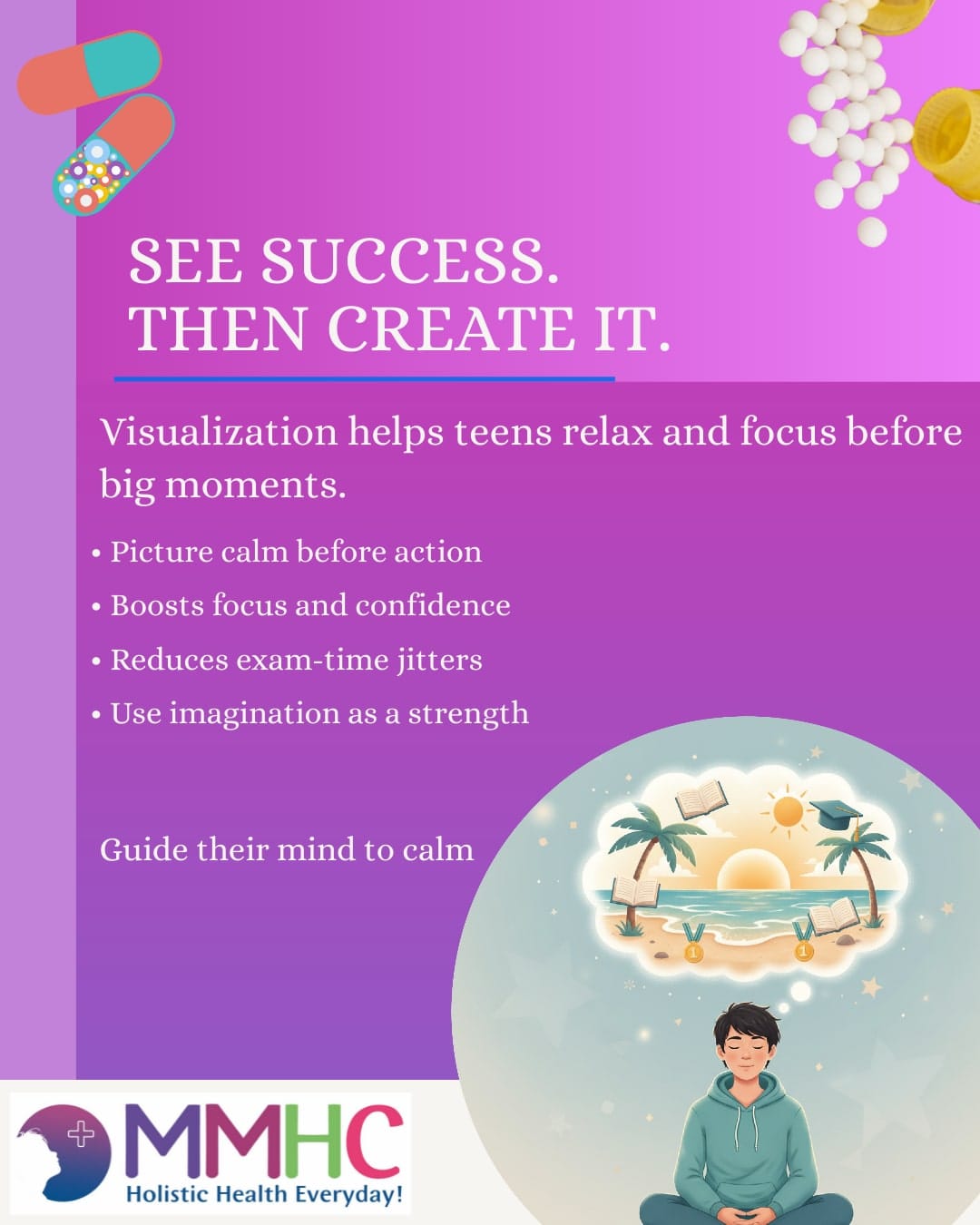
Guided imagery uses the power of imagination to promote relaxation and mental clarity.
Instructions: Describe guided imagery as imagining in your mind a peaceful, calm place or situation or successfully reaching a goal. Numerous free guided imagery audio files can be found on the web, or you can tell your teen simply describe a calm scene – maybe a quiet beach far from the city's hustle and bustle, a tranquil garden, or nailing a presentation at school. Urge them to use all their senses on this mental trip. Practice 10-15 minutes.
This Week's Goal: Enhance focus, reduce anxiety, and promote a sense of calm through imaginative visualization. Research, such as a meta-analysis in the Journal of Holistic Nursing, supports the use of guided imagery for stress reduction.
Week 7-8: Review, Refine, and Build a Sustainable Habit
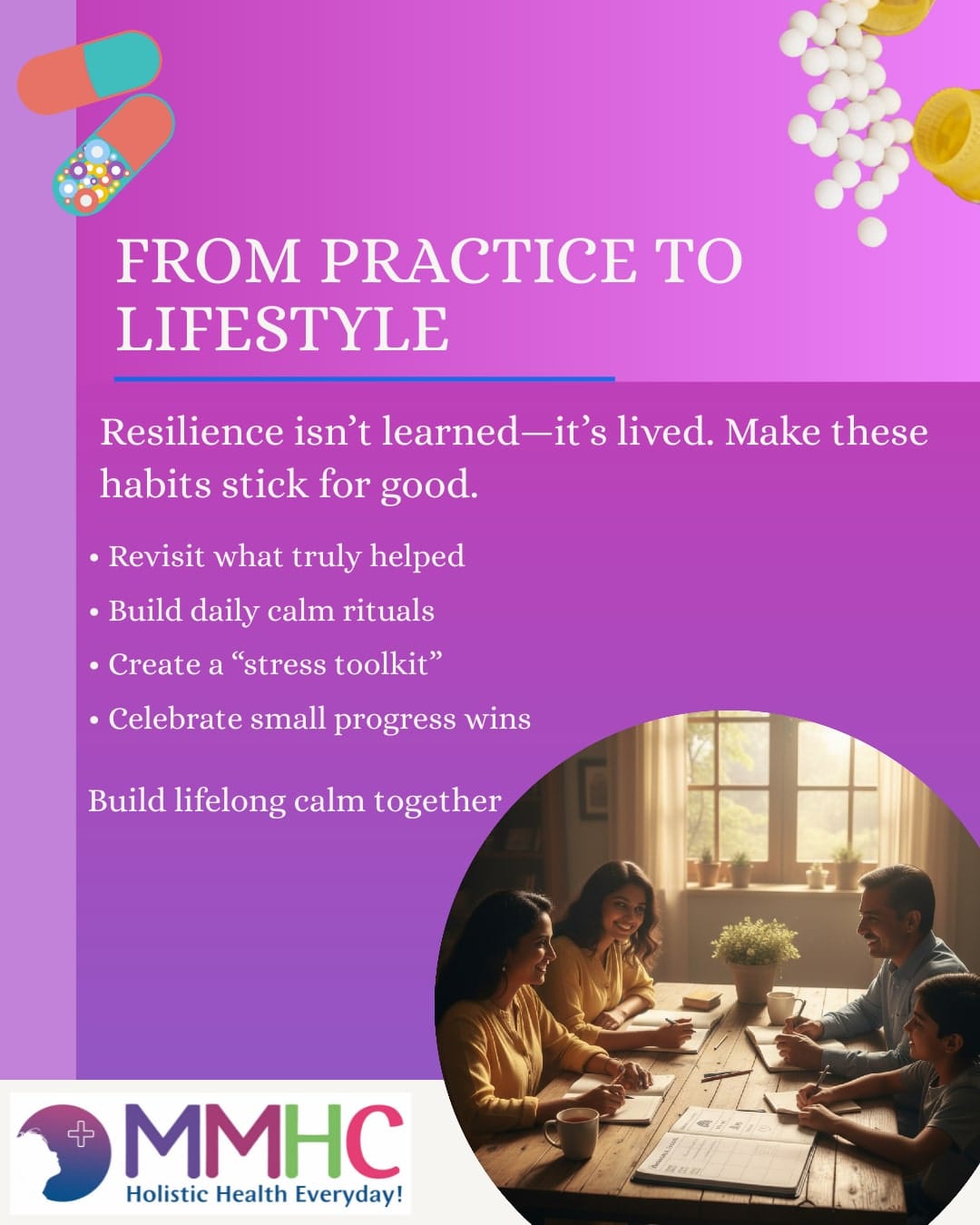
The final two weeks are about consolidating learning and making these practices a part of daily life.
Instructions: Review all the techniques learned: diaphragmatic breathing, progressive muscle relaxation, positive thinking, and guided imagery. Discuss with your teen which techniques they found most helpful and enjoyable. Encourage them to integrate these into their daily routine – perhaps a few minutes of breathing before an exam, PMR before bed, or positive affirmations in the morning. Help them create a personalized "stress-busting toolkit." Celebrate their progress and acknowledge their efforts.
This Week's Goal: Solidify learned techniques into lasting habits and empower teens to manage their own emotional well-being independently. For ongoing support, consider our comprehensive mental health programs designed for long-term resilience.
Consistency is Key:
Practicing for just 10-15 minutes, twice a day, is more effective than one long session. Small, regular efforts build stronger resilience over time.
Conclusion: Empowering Your Teen for a Brighter Future
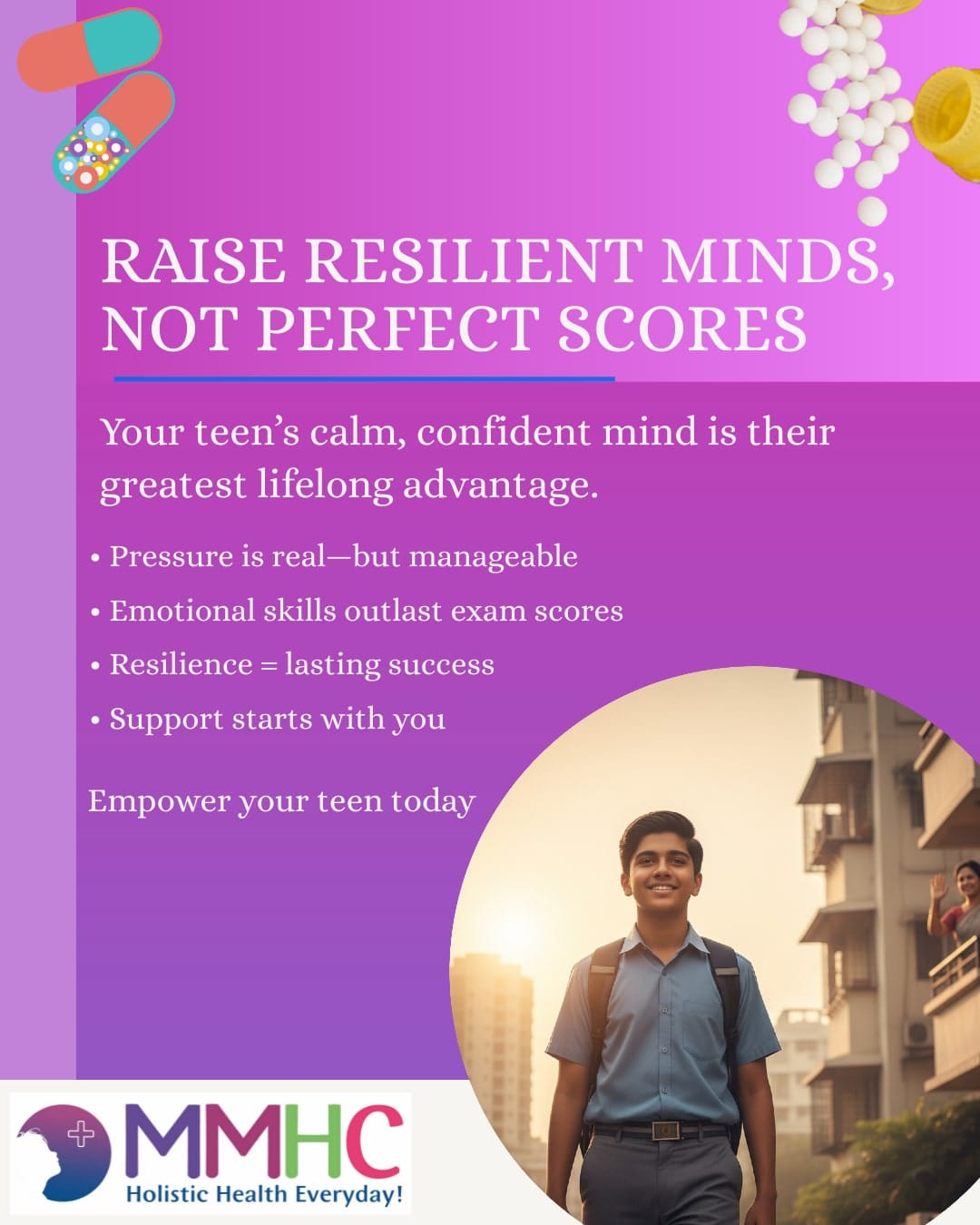
The reality of teen stress in a competitive city like Mumbai is a real and pervasive issue. The relentless academic pressure, the constant comparison fueled by social media, and the sheer pace of urban life can leave our teenagers feeling overwhelmed and isolated. Unmanaged stress isn't just a temporary discomfort; it can lead to serious consequences like burnout, poor academic performance, strained family relationships, and long-term mental health challenges such as anxiety and depression.
But there is a proven path forward. This 8-week plan offers a proactive, evidence-based solution to help your teenager build the emotional resilience they need to not just survive, but truly flourish. By dedicating a little time each week to these simple yet powerful techniques, you can empower your child with an internal toolkit that will serve them throughout their lives. You have the power to make a profound difference in their emotional wellness journey. If you ever feel overwhelmed or believe your teen needs more specialized support, remember that professional guidance is available. Visit our website at MMHC or call us for additional information.